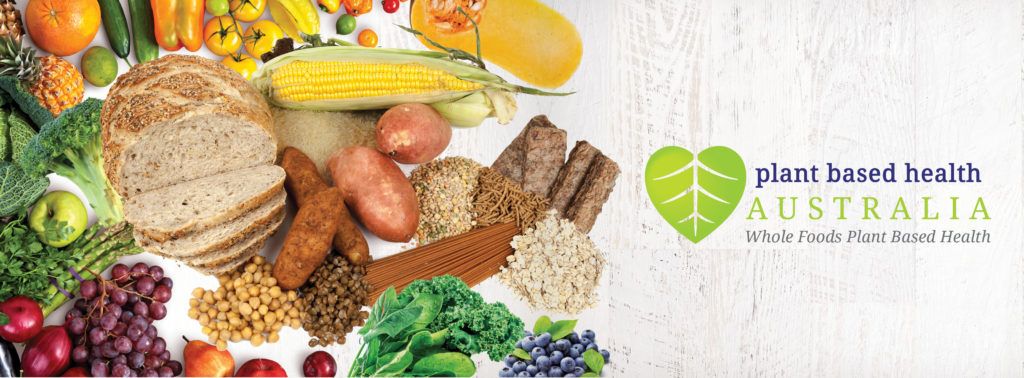
Dr Malcolm Mackay – General medical practice and lifestyle medicine
Dr Malcolm Mackay is a General Practitioner with more than 35 years of experience in medical practice. He has a broad range of skills across the full spectrum of general practice and lifestyle medicine. Dr Mackay has a special interest in preventing, treating and reversing chronic disease with whole foods plant-based nutrition and other evidence-based lifestyle interventions. He provides Lifestyle Medicine and Telehealth consultations for patients across Australia. He works with patients who wish to take a nutrition and lifestyle approach to optimise their health
Book a telehealth consultation
Malcolm and his nutritionist partner Jenny maintain a website of information and resources for plant-based nutrition and provide seminars and webinars. Malcolm and his team run a lifestyle medicine program, available as a 7-day Immersion retreat.
Future events:
- 7-day Lifestyle Medicine immersion retreat – 19-26 October 2025
- Plant-based nutrition webinar series: 4 sessions over 2 1/2 weeks, next series starts October 2025 (dates tbc)
Services
Medical:
- Consultations (in person)
- Telehealth consultations (within Australia)
Educational:
- Nutrition one-day seminars
- Nutrition & lifestyle immersion retreats
- Workplace nutrition programs
- Webinars
- Available for speaking events
Qualifications & Training
Medical degree
- BMBS – Flinders University (1984)
Additional training
- Graduate Diploma in Human Nutrition – Deakin University (1993)
- Board Certified Lifestyle Medicine Physician (IBLM)
- Plant Based Nutrition Certificate – eCornell
- Certificate of Sports Medicine (ASMF/RACGP)
Professional affiliations
- Fellow of the Australasian Society of Lifestyle Medicine
- Doctors for Nutrition – GP Resources Advisor
Melbourne Lifestyle MedicineVisit our new Lifestyle Medicine website
Recent conferences
- International Plant-Based Nutrition Healthcare Conference USA September 2024
- Doctors For Nutrition Conference, Melbourne, February 2023
- Australasian Society of Lifestyle Medicine Conference, Cairns, July 2022
Presenter
- Doctors For Nutrition Conference, Melbourne, February 2023
- Doctors For Nutrition Conference, Melbourne, February 2019 (workshop presenter)
- Veg and Vines Lifestyle Medicine Conference, Gisbourne NZ, January 2019 (conference presenter)
Speaker and host:
- 7-day Immersion retreats in the Yarra Valley, Victoria:
Next one: 19th-26th October 2025
Podcasts & interviews
- Dr Mackay does occasional live streams from his YouTube channel Plant Based Health Australia. Click on the link to view recent live streams.
- The SOS-Free Advantage of Plant-Based Nutrition with Dr. Malcolm Mackay – Health Science Podcast with Dr Frank Sabatino, January 2024
- Is Oil Healthy? Dr Malcolm Mackay and Jenny Cameron – IBD Heal/High Carb Health, March 2022. Also on YouTube and Spotify
- Dr Malcolm Mackay & Jenny Cameron – Melbourne Lifestyle Medicine – Lentil Intervention Podcast (now Planet Pulse Pacific podcast), September 2021 (53 mins)
- Jenny Cameron & Dr Malcolm Mackay On A Guide To A Healthy Plant Based Diet – The Plant Paradigm Podcast #90, June 2021 (1hr 18 min)
- Dr Malcolm Mackay an Australian Plant Based Doctor – interview with Chef AJ, August 2020
- Dr Malcolm Mackay on nutrition and lifestyle for Covid-19 – presentation given on 4th August 2020
- The Benefits of a Healthy Plant-Based Lifestyle, Dr Malcolm Mackay – Rheumatoid Solutions podcast (also available as video) with Clint Paddison, March 2020
For more information about whole foods plant based nutrition, visit my other website and associated Facebook page:
Jenny Cameron and Dr. Malcom Mackay - Meet the Plant-Based Doc and Nutritionist from Down Under
youtu.be
Dr Malcolm Mackay is a General Practitioner, nutritionist, and lifestyle medicine expert currently practising via telehealth. He has a special interest in pr...
